第48章 V(2)
The next task upon which the Prince embarked was a more arduous one: he determined to reform the organisation of the royal household. This reform had been long overdue. For years past the confusion, discomfort, and extravagance in the royal residences, and in Buckingham Palace particularly, had been scandalous; no reform had been practicable under the rule of the Baroness; but her functions had now devolved upon the Prince, and in 1844, he boldly attacked the problem. Three years earlier, Stockmar, after careful enquiry, had revealed in an elaborate memorandum an extraordinary state of affairs. The control of the household, it appeared, was divided in the strangest manner between a number of authorities, each independent of the other, each possessed of vague and fluctuating powers, without responsibility, and without co-ordination. Of these authorities, the most prominent were the Lord Steward and the Lord Chamberlain--noblemen of high rank and political importance, who changed office with every administration, who did not reside with the Court, and had no effective representatives attached to it. The distribution of their respective functions was uncertain and peculiar. In Buckingham Palace, it was believed that the Lord Chamberlain had charge of the whole of the rooms, with the exception of the kitchen, sculleries, and pantries, which were claimed by the Lord Steward. At the same time, the outside of the Palace was under the control of neither of these functionaries--but of the Office of Woods and Forests; and thus, while the insides of the windows were cleaned by the Department of the Lord Chamberlain--or possibly, in certain cases, of the Lord Steward--the Office of Woods and Forests cleaned their outsides. Of the servants, the housekeepers, the pages, and the housemaids were under the authority of the Lord Chamberlain; the clerk of the kitchen, the cooks, and the porters were under that of the Lord Steward; but the footmen, the livery-porters, and the under-butlers took their orders from yet another official--the Master of the Horse. Naturally, in these circumstances the service was extremely defective and the lack of discipline among the servants disgraceful. They absented themselves for as long as they pleased and whenever the fancy took them; "and if," as the Baron put it, "smoking, drinking, and other irregularities occur in the dormitories, where footmen, etc., sleep ten and twelve in each room, no one can help it." As for Her Majesty's guests, there was nobody to show them to their rooms, and they were often left, having utterly lost their way in the complicated passages, to wander helpless by the hour. The strange divisions of authority extended not only to persons but to things. The Queen observed that there was never a fire in the dining-room. She enquired why. The answer was "the Lord Steward lays the fire, and the Lord Chamberlain lights it;" the underlings of those two great noblemen having failed to come to an accommodation, there was no help for it--the Queen must eat in the cold.
A surprising incident opened everyone's eyes to the confusion and negligence that reigned in the Palace. A fortnight after the birth of the Princess Royal the nurse heard a suspicious noise in the room next to the Queen's bedroom.